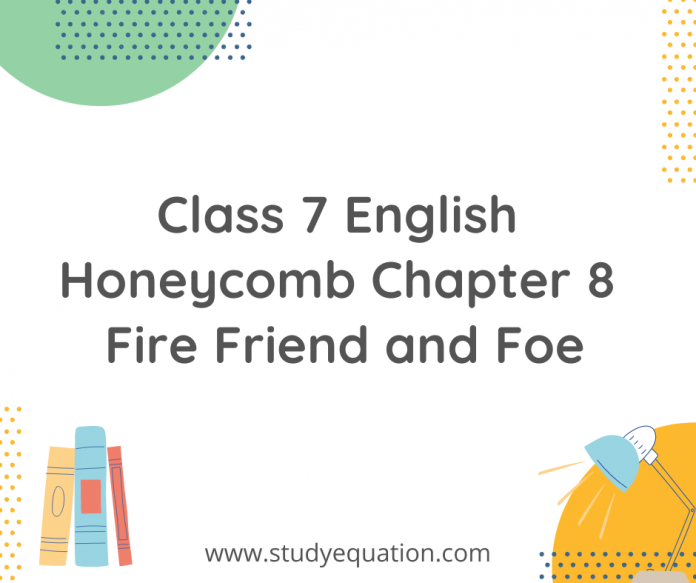CBSE Summary with NCERT Solutions For Class 7 English Honeycomb Chapter 8 Fire Friend and Foe for revision and better performance in tests and exams. This extract teaches us about fire, it’s benefits and harms and also enlightens us on how to control it. Below you can find a brief explanation of the lesson and NCERT Solutions For Class 7 English Honeycomb Chapter 8 Fire Friend and Foe.
Read more: NCERT Solutions For Class 7 English Honeycomb Poem Chapter 1 The Squirrel
Table of Contents
Let’s Summarise NCERT Solutions For Class 7 English Honeycomb Chapter 8 Fire Friend and Foe
NCERT Solutions For Class 7 English Honeycomb Chapter 8 Fire Friend and Foe, Our ancestors were already aware of lightning and volcanoes before they knew about the fire, hence, the fire was dangerous, powerful, frightening and a miraculous mystery for them. But science has informed modern men that it is only a result of a chemical reaction.

FIRE
O2 + CO2 + H2 ==> HEAT + Light
When oxygen present in the air combines with carbon and hydrogen present in the fuel, energy is released in form of heat and light and this is FIRE. Requirements for making fire are – fuel, heat, and oxygen. Fuel and oxygen are easily available to us in the form of wood, oil, and gas, and from air respectively. But providing the heat to an object to make it catch fire is the tricky part. Every fuel burns at a particular temperature which is ‘flashpoint’ or ‘kindling temperature’.
Fire will be a good servant if you handle it with care but it can be a cruel master if it goes out of control.

Revise The Invention Of Vita Wonk from StudyEquation
| Fire – Our Friend | Fire – Our Foe |
| It is used in our house daily for cooking food, burning candles, warming our houses, producing electricity. | It can cause damage to life, houses, and even forests. |

You can control fire by deducting any one of its three requirements.
- It can be stopped by taking away the fuel.
- It can be minimised by cancelling the oxygen supply. For eg, blankets are thrown over burning objects.
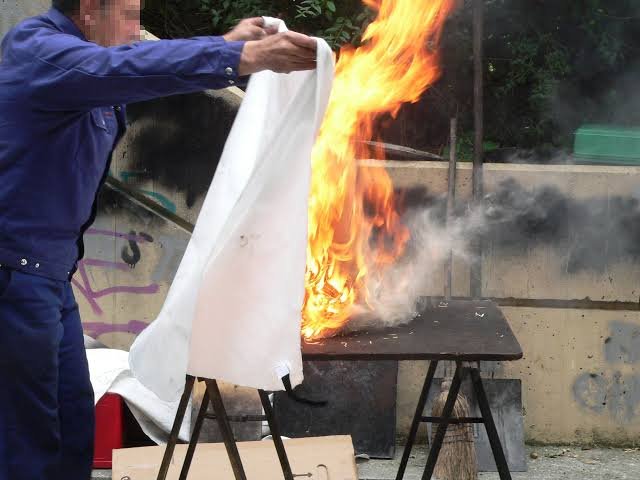
- You can control fire by reducing the flashpoint. For eg, spraying water cools down the temperature and the fire, eventually, stops.
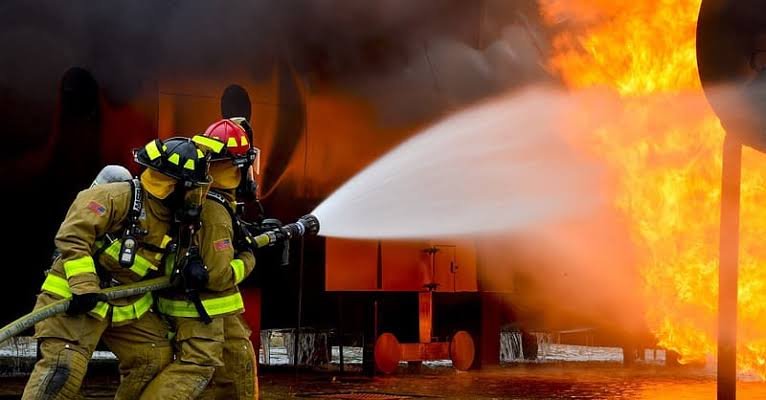
However, you cannot use water to put out –
- Electrical fires because a person might get a shock as water is a good conductor of electricity.
- Oil fires as oil is lighter than water and it will float above it, this may even cause rapid spread of fire as water flows quickly.
One must reside in using fire extinguishers in these cases.
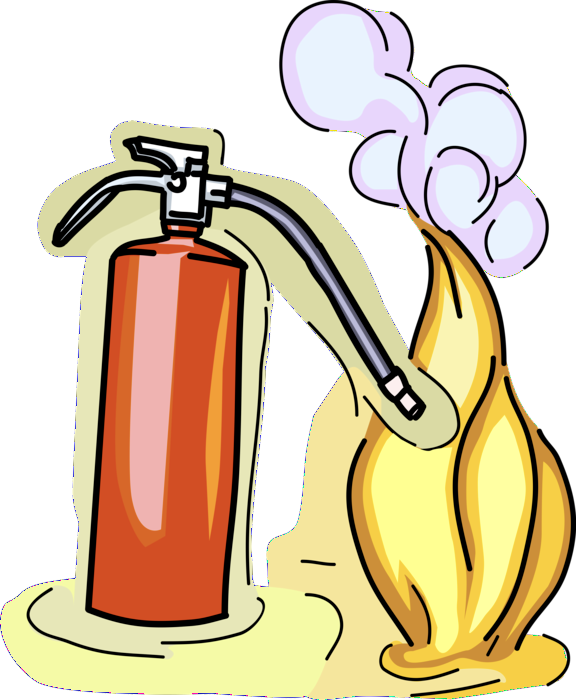
Gone are the days when people used to form human chains and pass buckets of water from ponds and wells to the fire hazard. Now – a – days, there are trained and skillful firefighters to handle this. The trained team of firefighters is the fire brigade. They take training to handle all kinds of fire. They learn first-aid as well to deliver an immediate remedy to people suffering from burn injuries.
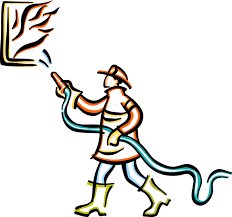
Fire is a dear friend if it can be used properly, but can turn dangerous if it goes out of control. None the less, fire is worshipped as God in many cultures around the globe.
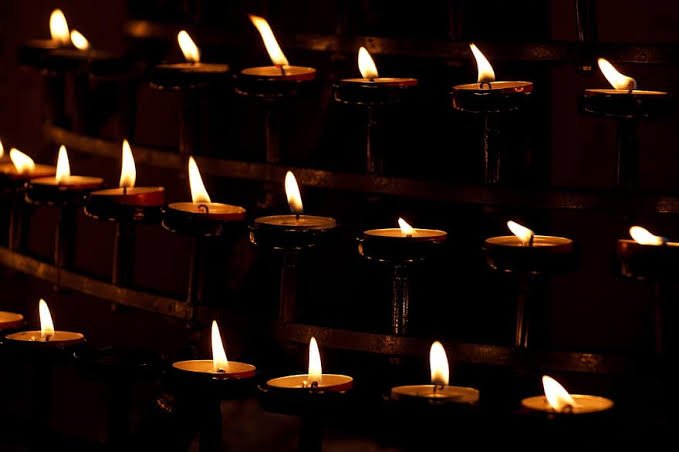
NCERT Solutions For Class 7 English Honeycomb Chapter 8 Fire Friend and Foe
Comprehension Check: NCERT Solutions For Class 7 English Honeycomb Chapter 8 Fire Friend and Foe
(Find NCERT Solutions For Class 7 English Honeycomb Chapter 8 Fire Friend and Foe below)
Q. 1. Mark the correct answer in each of the following.
i) Early man was frightened of –
(a) lightening and volcanoes.
(b) the damage caused by them.
(c) fire.
ii)
a) Fire is energy.
(b) Fire is heat and light.
(c) Fire is the result of chemical reaction.
(Fire- Friend and Foe, Page 118)
A)
i) (c) fire.
ii) (c) Fire is the result of chemical reaction
Q. 2. From the boxes given below choose the one with the correct order of the following sentences.
(i) That is fire.
(ii) A chemical reaction takes place.
(iii) Energy in the form of heat and light is released.
(iv) Oxygen combines with carbon and hydrogen.
1. (ii) (iii) (iv)
2. (iii) (i) (iv)
3. (iii) (ii) (i)
4. (ii) (iii) (i)
(Fire- Friend and Foe, Page 118)
A) 4. (ii) (iii) (i)
Working with the Text
(Find NCERT Solutions For Class 7 English Honeycomb Chapter 8 Fire Friend and Foe below)
Q. 1.What do you understand by the ‘flash point’ of a fuel? (Fire- Friend and Foe)
A) Every fuel burns only at a particular temperature, this temperature is called the ‘flashpoint’ or ‘kindling temperature’ of a fuel.
Q. 2. What are some common uses of fire? In what sense is it a ‘bad master’? (Fire- Friend and Foe)
A) Fire is used in cooking, to keep our homes warm during winter. It is used as a source of light by burning candles and is also used to produce electricity.If fire is not handled with care, it can cause damage to our life, house and property and nature hence making it a ‘bad master’.
Q. 3. Match items in Column A with those in Column B. (Fire- Friend and Foe)
| A | B |
| Fuel | Lighted matchstick |
| Oxygen | Air |
| Heat | Coal |
| Burning coal | |
| Wood | |
| Smouldering paper |
A)
| A | B |
| Fuel | Coal |
| Burning coal | |
| Wood | |
| Smouldering paper | |
| Oxygen | Air |
| Heat | Lighted matchstick |
Q. 4. What are the three main ways in which a fire can be controlled or put out? (Fire- Friend and Foe)
A) Fire can be put out by taking away any one of it’s three requirements that are – the fuel, supply of oxygen or by cooling down the temperature around the fuel, so that the fuel is not able to attain its flash point.
Q. 5. (Fire- Friend and Foe)
| A | B |
| To burn a paper or a piece of wood | It absorbs heat from the learning material and lowers the temperature. |
| Small fires can be put out | Reduces the risk of fire |
| When water is spread on fire | With a damp blanket |
| A carbon dioxide extinguisher is the best thing | We heat it before it catches fire |
| Space left between buildings | To put out an electrical fire |
A)
| A | B |
| To burn a paper or a piece of wood | We heat it before it catches fire |
| Small fires can be put out | With a damp blanket |
| When water is spread on fire | It absorbs heat from the learning material and lowers the temperature |
| A carbon dioxide extinguisher is the best thing | To put out an electrical fire |
| Space left between buildings | Reduces the risk of fire |
Working With Language
(Find NCERT Solutions For Class 7 English Honeycomb Chapter 8 Fire Friend and Foe below)
Q. 1. Read the following sentences.
To burn paper or a piece of wood, we heat it before it catches fire. We generally do it with a lighted match. Every fuel has a particular temperature at which it burns.
The verbs in italics are in the simple present tense. When we use it, we are not thinking only about the present. We use it to say that something happens all the time or repeatedly or that something is true in general.
Find ten examples of verbs in the simple present tense in the text ‘Fire: Friend and Foe’ and write them down here. Do not include any passive verbs. (Fire- Friend and Foe)
A)
- Fire is the result of a chemical reaction
- This is what we call fire.
- To burn a piece of paper or wood, we heat it before it catches fire.
- Oxygen comes from the air.
- It is sometimes said that fire is a good servant, but a bad master.
- The third way to putting out a fire is to remove heat.
- We spend millions of rupees each year in fighting fire.
- It absorbs heat from burning fuel.
- It only means that fire is very useful.
- Fire is still worshipped in many parts of the world.
Q. 2. Fill in the blanks in the sentences below with words from the box. You may use a word more than once.
Carbon, Cause, Fire, Smother
- Gandhiji’s life was devoted to the ……………. of justice and fair play.
- Have you inspired your house against …………..?
- Diamond is nothing, but ………….. in its purest form.
- If you put too much coal on the fire at once you will ………. it.
- Smoking is said to be the main ………… of heart disease.
- When asked by an ambitious writer whether he should put some ……….. into his stories. Somerset Maugham murmured, “No, the other way round”.
- She is ……………. a copy of her mother.
- It is often difficult to ……………. a yawn when you listen to a long speech on the value of time. (Fire- Friend and Foe)
A)
- Gandhiji’s life was devoted to the cause of justice and fair play.
- Have you inspired your house against fire?
- Diamond is nothing, but carbon in its purest form.
- If you put too much coal on the fire at once you will smother it.
- Smoking is said to be the main cause of heart disease.
- When asked by an ambitious writer whether he should put some fire into his stories. Somerset Maugham murmured, “No, the other way round”.
- She is a carbon copy of her mother.
- It is often difficult to smother a yawn when you listen to a long speech on the value of time.
Q. 3. You can see one word in italics in each sentence. Find its opposite in the box and fill in the blanks.
Spending, Shut, Destroy, Subtract, Increase
- You were required to keep all the doors open, not ……………
- Pupil: What mark did I get in yesterday’s Maths test?
Teacher: You got what when you add five and ……………… five and ten from the total? - Run four kilometers a day to preserve your health. Run a lot more to …………….. it.
- If a doctor advises a lean and lanky patient to …………… reduce his weight further, be sure he is doing it to his income.
- The world is too much with us; late and soon.Getting and ………….. we lay waste our powers. (Fire- Friend and Foe)
A)
- You were required to keep all the doors open, not shut
- Pupil: What mark did I get in yesterday’s Maths test?
Teacher: You got what when you add five and subtract five and ten from the total? - Run four kilometers a day to preserve your health. Run a lot more to destroy it.
- If a doctor advises a lean and lanky patient to increase or reduce his weight further, be sure he is doing it to his income.
- The world is too much with us; late and soon. Getting and spending we lay waste our powers.
Q. 4. Use the words given in the box to fill in the blanks in the sentences below.
Across, Along, Past, Through
- The cat chased the mouse …………… the lawn.
- We were not allowed to cross the frontier.So, we drove …………. it as far as we could and came back happy.
- The horse went ……….. the winning post and had to be stopped with difficulty.
- It is not difficult to see ………….. your plan. Anyone can see your motive.
- Go ……………. the yellow line, then turn left. You will reach the post office in five minutes. (Fire- Friend and Foe)
A)
- The cat chased the mouse across the lawn.
- We were not allowed to cross the frontier. So, we drove along it as far as we could and came back happy.
- The horse went past the winning post and had to be stopped with difficulty.
- It is not difficult to see through your plan. Anyone can see your motive.
- Go along the yellow line, then turn left. You will reach the post office in five minutes.
Practice Last Year Question Papers
Some Frequently Asked Questions
(Find FAQs For Class 7 English Honeycomb Chapter 8 Fire Friend and Foe below)
Q. 1. Why a newspaper or stick lying in the open does not catch fire on its own? (Fire- Friend and Foe)
A) The three requirements for making a fire are oxygen, fuel and heat. Hence, the presence of fuel (newspaper or stick) in oxygen (open) is not enough. Heat is important, a substance only catches fire at it’s flashpoint.
Q. 2. Why gaps are left between buildings during construction? (Fire- Friend and Foe)
A) Spaces are seen between buildings during construction so as to reduce the risk of fire.
Conclusion: NCERT Solutions For Class 7 English Honeycomb Chapter 8 Fire Friend and Foe
The above written includes the explanation and question answers of NCERT Class 7 NCERT Solutions For Class 7 English Honeycomb Chapter 8 Fire Friend and Foe English Honeycomb Chapter 8 Fire-Friend and Foe. Browse our site for various detailed and easy NCERT Solutions and CBSE Notes and Comprehensive Summary.

